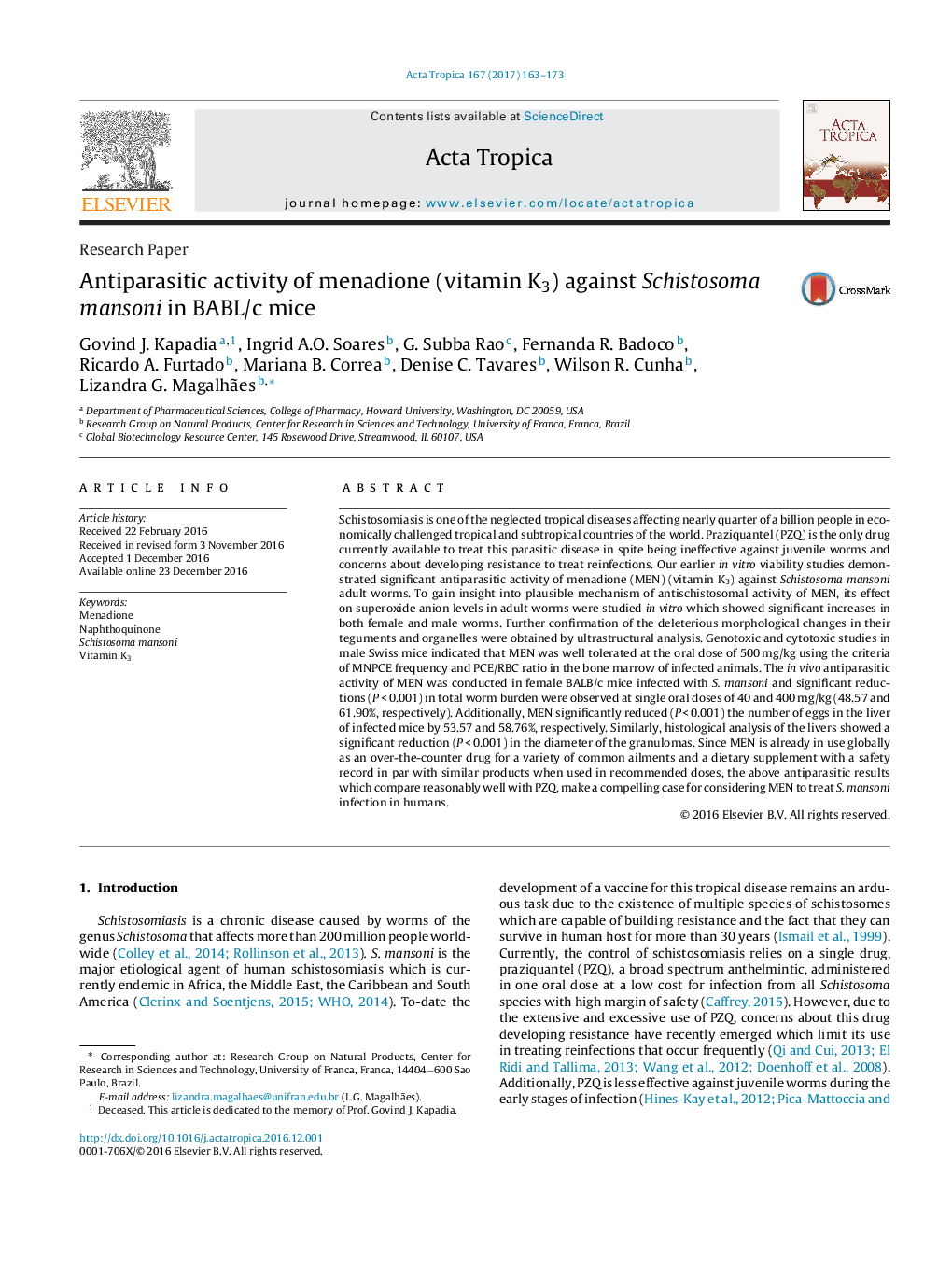| Article ID | Journal | Published Year | Pages | File Type |
|---|---|---|---|---|
| 5670959 | Acta Tropica | 2017 | 11 Pages |
â¢LC50 of menadione (MEN) against S. mansoni adult worms in vitro was 10.49 ± 1.02 μM at 24 h.â¢MEN induced alterations on tegument and organelles of S. mansoni adult worms in vitro.â¢MEN increased superoxide anion levels in S. mansoni adult worms in vitro.â¢MEN reduced the number of worms and egg formation in S. mansoni-infected mice in vivo.â¢Above effects of MEN compared reasonably well to currently used drug, praziquantel.
Schistosomiasis is one of the neglected tropical diseases affecting nearly quarter of a billion people in economically challenged tropical and subtropical countries of the world. Praziquantel (PZQ) is the only drug currently available to treat this parasitic disease in spite being ineffective against juvenile worms and concerns about developing resistance to treat reinfections. Our earlier in vitro viability studies demonstrated significant antiparasitic activity of menadione (MEN) (vitamin K3) against Schistosoma mansoni adult worms. To gain insight into plausible mechanism of antischistosomal activity of MEN, its effect on superoxide anion levels in adult worms were studied in vitro which showed significant increases in both female and male worms. Further confirmation of the deleterious morphological changes in their teguments and organelles were obtained by ultrastructural analysis. Genotoxic and cytotoxic studies in male Swiss mice indicated that MEN was well tolerated at the oral dose of 500Â mg/kg using the criteria of MNPCE frequency and PCE/RBC ratio in the bone marrow of infected animals. The in vivo antiparasitic activity of MEN was conducted in female BALB/c mice infected with S. mansoni and significant reductions (PÂ <Â 0.001) in total worm burden were observed at single oral doses of 40 and 400Â mg/kg (48.57 and 61.90%, respectively). Additionally, MEN significantly reduced (PÂ <Â 0.001) the number of eggs in the liver of infected mice by 53.57 and 58.76%, respectively. Similarly, histological analysis of the livers showed a significant reduction (PÂ <Â 0.001) in the diameter of the granulomas. Since MEN is already in use globally as an over-the-counter drug for a variety of common ailments and a dietary supplement with a safety record in par with similar products when used in recommended doses, the above antiparasitic results which compare reasonably well with PZQ, make a compelling case for considering MEN to treat S. mansoni infection in humans.
Graphical abstractDownload high-res image (130KB)Download full-size image
